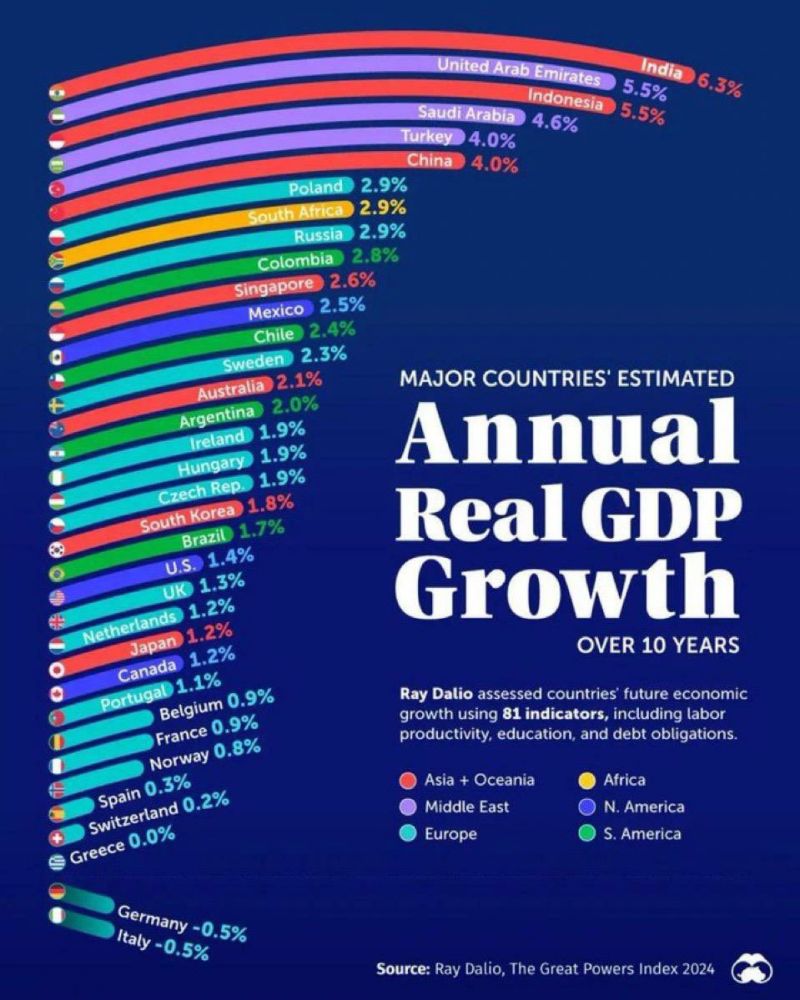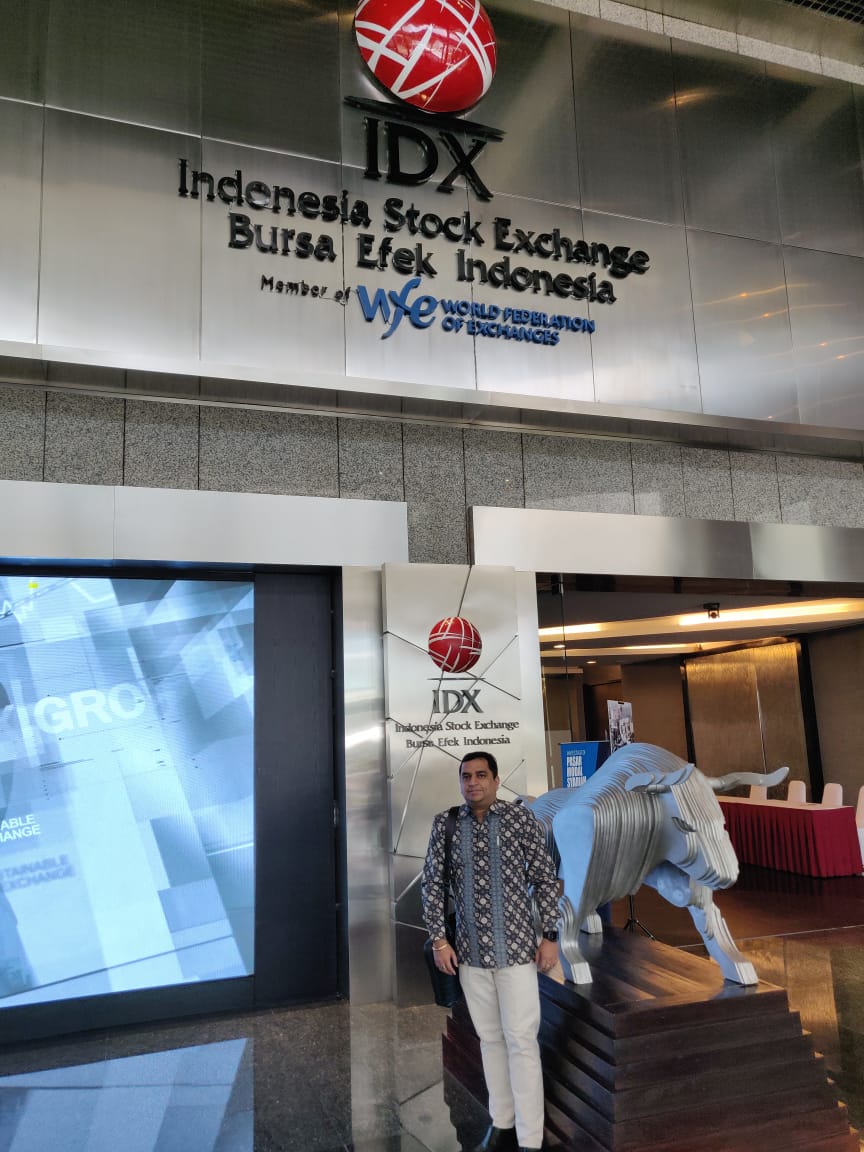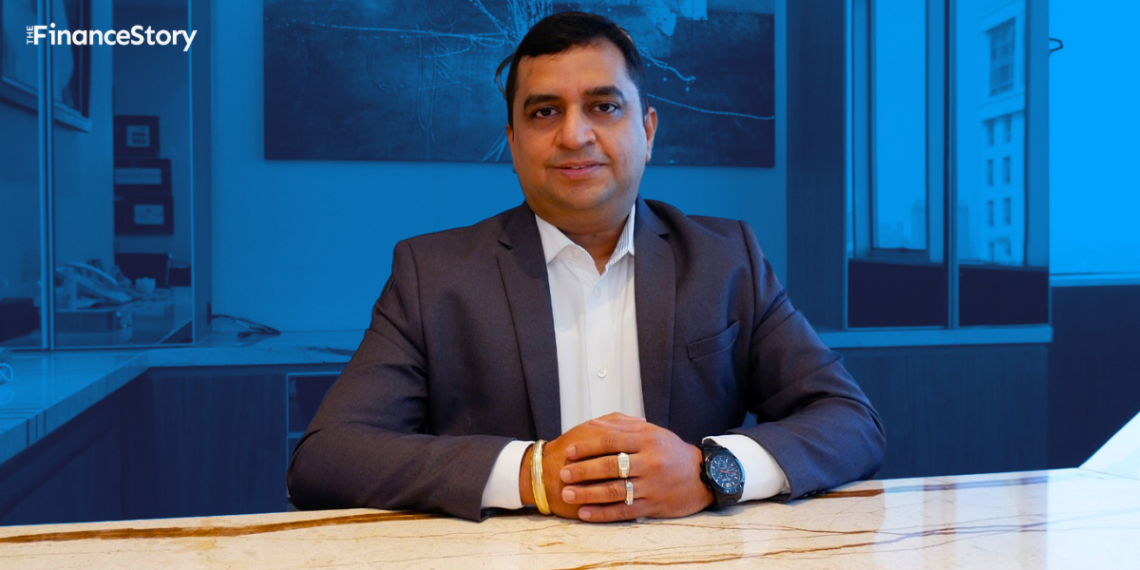- I’m Anuj Maheshwari, a finance leader who rode the exhilarating wave of India’s unicorns – Oyo, Flipkart, and Cars24 – thriving in the fast-paced world of startups.
- I thought I’d be riding this wave forever when a colleague casually suggested.“Hey, why don’t you check out an opportunity in Jakarta?”
- Skeptical, I decided to take a look…But what I discovered was fascinating!
- Fast forward, to 2019 I relocated to Indonesia…Here is why!

Backstory
2005. I qualified as a chartered accountant from India and started my career in finance. I worked with several large organisations in India.
2014. Joined Flipkart (founded in 2007 and as of 2024, Flipkart is valued at $35–36 billion)
2016. Two years later joined Oyo (founded in 2013 and achieved unicorn status in 2018) as a Finance Controller.
2018. I moved to Cars24 (founded in 2015, and reached unicorn status in 2020) as Director of Finance.
It was during my time here that a colleague in Indonesia suggested I should check out this fast-growing Southeast Asian country!
A quick visit turned into a revelation.
Jakarta was a high-potential, under-the-radar goldmine and I could feel the pulse of growth possibilities!
March’19. Moved to Jakarta, Indonesia as Group CFO, KANMO Group – Indonesia’s largest baby and kids retail omnichannel player. They operate over 300 stores, representing a range of global brands.
They aimed to grow faster and were looking for someone with a startup background to help accelerate their growth journey. I seemed the perfect match!
I was drawn by their impressive 15-year legacy and a CAGR of 21%!
Parameters I focussed on
When the Jakarta opportunity arose the decision to shift base did not happen overnight!
I spent considerable time evaluating it:
Career growth: I first considered how relocating could help me advance my career. Indonesia presented a rich professional environment, where I could work on high-profile projects like fundraising, private equity, and IPOs. It’s essentially a dream role for any finance professional.
KANMO in 2022 raised private equity, followed by our IPO in 2023. Now, I’m focused on driving several M&A projects. So the career growth was terrific!
Culture fit: The vibe of most Indonesian companies is very welcoming. Having worked in fast-paced startup environments I have noticed the crazy work pressure in India. However, in Indonesia, it’s a complete 180-degree difference.
Long-term goal: I also thought about whether I could live in Indonesia for over five years. The Indonesian economy’s growth and how it compares positively to other Southeast Asian markets boosted my confidence. I met people who had been in Indonesia for over a decade, and they seemed genuinely happy.
Friendly community: During the 2 or 3 days I spent here, I took time to explore local communities and schools, assessing if they would be suitable for my family. Indonesia turned out to be incredibly welcoming to foreigners, which made it easier for me to envision settling here.
Climate: With a year-round temperature range of 24 to 35 degrees Celsius, the climate was another positive factor – it’s generally comfortable and stable without extreme temperatures.

Overview of the Indonesian economy
Here are the factors that drive growth in Indonesia.
Huge area and population: Indonesia is the 14th largest country by area and the 4th most populous, with a population exceeding 270 million.
Location advantage: Indonesia is located in the heart of Southeast Asia, surrounded by countries like Singapore, which fosters many strong partnership projects.
GDP: Indonesia is set to become the world’s 3rd largest economy in the next decade
Indonesia’s GDP growth is at 5.1%, making it one of the fastest-growing economies in Southeast Asia. In 2023, the country attracted over $20 billion in foreign direct investment, with expectations for a 25% increase next year.
Consumerism: Indonesia is a strong economy that relies heavily on consumer spending, especially driven by young people.
Natural resources: Indonesia has abundant resources like coal, palm oil, and metals such as nickel, which are boosting their exports.
Infrastructure: Infrastructure development is crucial for any country, and Indonesia is experiencing significant growth in this area. It is a major driver for government projects, including road construction and energy plants. For example, last year, Indonesia launched a bullet train.
Digital economy: The digital economy in Indonesia is booming.
Guess what? Indonesians spend an average of 6 hours a day on screens, making them the highest users globally!
- Indonesia ranks 4th globally with 110 million active Instagram users.
- It also ranks 2nd globally on TikTok, with 113 million users.
- Social commerce has a 70% penetration rate in the country, engaging around 170 million people.
- Rapid digital growth is a key factor driving Indonesia’s economic development.
Opportunities for finance professionals in Indonesia
One major challenge in Indonesia is the ongoing shortage of talented finance professionals.
The demand for finance professionals is high, particularly for emerging roles that have evolved with the growing economy.
Roles
First, we have corporate finance. This includes,
- Corporate restructuring
- Mergers and acquisitions
- Raising capital
- Business efficiency and transformation projects
- Investment banking
- Consulting
Companies
Big 4: Other leading firms, are constantly seeking finance professionals.
Industry: There are several fast-growing industries like,
- E-commerce
- Digital payments,
- Fintech,
- Consumer goods
In Indonesia, key locations with high demand for finance professionals include:
- Jakarta: Located on the island of Java, which holds 56% of Indonesia’s population. Jakarta is a major hub, similar to cities like Mumbai or Shanghai, especially for finance and retail professionals.
- Bali: Known for its thriving tourism industry, there’s a strong demand for finance professionals in the hospitality sector.
- Surrounding towns: Areas with a focus on textiles and manufacturing also offer numerous finance job opportunities in these satellite regions.
So if you are looking for a change in your career and considering moving to a different country, Indonesia certainly stands out as a great choice, following the UAE and India.
Work permit in Indonesia
Indonesia’s visa process is similar to that of the UAE. However, the government is now paying close attention, making it harder to get work visas.
This means organizations can’t easily hire many foreign workers. There are specific compliance and labour regulations that must be followed.
If you’re planning to work in Indonesia, here are key factors to keep in mind regarding work permits and local employment regulations:
Work Permit Requirements: The Indonesian government enforces quota limits for foreign hires. For instance, in a company with 100 employees, only about 3% to 5% can be foreign professionals. These quotas are strictly regulated to prioritize local employment.
Restricted Roles for Foreigners: Some positions are off-limits to foreign workers, especially entry-level or non-technical roles. The government has specific policies to protect these jobs for the local workforce.
Skills Gap Justification: Employers need to demonstrate that the role they are hiring for requires specialized skills that are not readily available among local talent, particularly for supervisory or highly skilled finance roles. This helps justify the employment of foreign workers in certain industries, especially in fields with high demand, like finance.
Economic Contribution: To enhance approval chances, it’s helpful to outline how the foreign hire will positively impact the economy, share valuable skills, and potentially train local employees. This requirement underscores the importance of knowledge transfer and long-term benefits for Indonesia’s workforce.
These requirements ensure that foreign hires bring unique skills and contribute meaningfully to Indonesia’s growth while fostering local talent development.
Once your employer clarifies these questions, he will have to apply for your work permit.
Once approved, the Department of Manpower issues a Limited Stay Permit (ITAS), valid for one year and renewable annually.
Note: Your family cannot join immediately; you’ll need to apply for their permits separately.
Compensation you can expect
In-hand salary: Indonesia offers a salary range of 2 to 2.5 times higher than your salary in India!
Bonuses: In addition to the fixed salary, you can expect a mandatory bonus during Eid.
Stock options: The other incentive includes stock options, which can include direct stock or deferred incentive plans. If you join a startup, you will likely receive an Employee Stock Ownership Plan (ESOP). If you join a publicly listed company, you may participate in a stock option trust that converts after reaching specific milestones. This presents a great chance for you to build wealth over time while working in Indonesia.
Other perks:
Many companies offer a standard expat package while the details vary between organizations it typically includes
- Housing
- Transportation
- Children’s schooling
- Medical care
- Travel expenses
Senior positions often come with additional benefits, making these perks a significant part of the overall compensation package.
Cost of living in Indonesia
Luckily, you can save about 50 to 60% of your income, again this depends on various factors!
Housing: In modern Jakarta, renting in prime areas can be pricey – often 1.5 to 2 times higher than in Gurgaon for similar locations.
Alternatively, the older part of Jakarta offers more affordable housing, though it’s farther from the main business district where most corporate offices are located.
Groceries: With limited local production of urban consumer goods, especially food, Indonesia relies heavily on imports meaning higher costs in this area.
Schooling: If you have children, a major expense will likely be their education, as international schools, often essential for expat families, have high tuition fees.
Other than that you mainly need to create a budget for your lifestyle and medical needs.
My biggest pain point as a CFO
Regulatory challenges
For instance, last year saw rapid regulatory changes in Indonesia, requiring us to stay updated.
A new compliance requirement for imports significantly raised costs, leaving us no choice but to adapt.
Similarly, changes in labor regulations are beyond our control, so we need to focus on boosting cost efficiency.
Talent shortage
We often have young, educated individuals in the workforce, but finding the right talent for your team is always a challenge. Employee turnover is high.
With people spending around 6 hours on TikTok and Instagram, it’s clear how that affects productivity.
Logistics
Technology infrastructure
Lastly, it’s important to have a tech-ready infrastructure in today’s world. Whether it’s changes from the government or the startup scene, there’s always a need for this kind of infrastructure.
We have to manage various systems, including warehouse management, payroll, retail management, and accounting ERP.
Challenge of Multi-Channel Financial Management
Managing the financial side is also complex. We have to handle accounting, inventory, and provisioning across multiple channels. It’s quite complicated behind the scenes.
Wrapping Up…
Looking back, I don’t regret moving to Indonesia, even though the post-COVID boom has been phenomenal in India, with friends and ex-colleagues moving around Zepto, Zomato, and Swiggy.
Being part of Indonesia’s transformation journey has been just as fulfilling.
Yes, I missed the startup energy in India, so I ventured into angel investing.
I have invested in over 30 startups across sectors like health tech, climate tech, and fintech, keeping me closely connected to India’s dynamic ecosystem.
The big question is – Should you consider moving to Indonesia? I’d say welcome!
However, focus on finding a sector that aligns with government priorities and consider whether the lifestyle suits you and your family.
Indonesia has incredible growth opportunities, and it’s a place where finance professionals are truly in demand.







